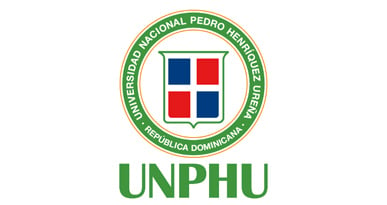Mostrar el registro sencillo del ítem
The effect of massive transfusion protocol implementation on the survival of trauma patients: a systematic review and meta-analysis
| dc.contributor.author | Consunji, Rafael | |
| dc.contributor.author | Elseed, Alaa | |
| dc.contributor.author | El-Menyar, Ayman | |
| dc.contributor.author | Sathian, Brijesh | |
| dc.contributor.author | Rizoli, Sandro | |
| dc.contributor.author | Al-Thani, Hassan | |
| dc.contributor.author | Peralta, Ruben | |
| dc.date.accessioned | 2020-11-17T15:37:16Z | |
| dc.date.available | 2020-11-17T15:37:16Z | |
| dc.date.issued | 2020-03-15 | |
| dc.identifier.citation | Consunji R, Elseed A, El-Menyar A, Sathian B, Rizoli S, Al-Thani H, Peralta R. The effect of massive transfusion protocol implementation on the survival of trauma patients: a systematic review and met. Blood Transfus. [En línea]. 2020 [consultado día mes año]; 18: 434-45. Disponible en: DOI 10.2450/2020.0065-20 | en_US |
| dc.identifier.uri | https://repositorio.unphu.edu.do/handle/123456789/3296 | |
| dc.description.abstract | Massive transfusion protocol (MTP) has been widely adopted for the care of bleeding trauma patients but its actual effectiveness is unclear. An earlier meta-analysis on the implementation of MTP for injured patients from 1990 to 2013 reported that only 2 out of 8 studies showed statistical improvement in survival. This study aimed to conduct an updated systematic review and meta-analysis to evaluate the effect of implementing an MTP on the mortality of trauma patients. Materials and methods - MEDLINE, PubMed, Cochrane Library and Google scholar databases were systematically searched for relevant studies published from 1st January 2008 to 30th September 2019 using a combination of keywords and additional manual searching of reference lists. Inclusion criteria were: original study in English, study population including trauma patients, and comparison of mortality outcomes before and after institutional implementation of an MTP. Primary outcomes were 24-hour, 30-day, and overall mortality. Results - Fourteen studies met inclusion criteria, analysing outcomes from 3,201 trauma patients. There was a wide range of outcomes, patient populations, and process indicators utilised by the different authors. MTP significantly reduced the overall mortality for trauma patients (OR 0.71 [0.56-0.90]). No significant reduction was seen in either the 24-hour mortality (OR 0.81 [0.57-1.14]) or the 30-day mortality (OR 0.73 [0.46-1.16]). However, when mortality timing was unspecified, mortality was statistically reduced (OR 0.69 [0.55-0.86]). Discussion - The present study found a significant reduction in mortality following MTP implementation and thus it should be recommended to all institutions managing acutely injured patients. To better identify which elements of an MTP contribute to this effect, we encourage the use of standard nomenclature, indicators, protocols and patient populations in all future MTP studies. | en_US |
| dc.language.iso | en | en_US |
| dc.publisher | Blood Transfus | en_US |
| dc.rights | Attribution-NonCommercial-NoDerivs 3.0 United States | * |
| dc.rights.uri | http://creativecommons.org/licenses/by-nc-nd/3.0/us/ | * |
| dc.subject | Traumatismos hemorrágicos | en_US |
| dc.title | The effect of massive transfusion protocol implementation on the survival of trauma patients: a systematic review and meta-analysis | en_US |
| dc.type | Article | en_US |
| dc.identifier.doi | DOI 10.2450/2020.0065-20 |



